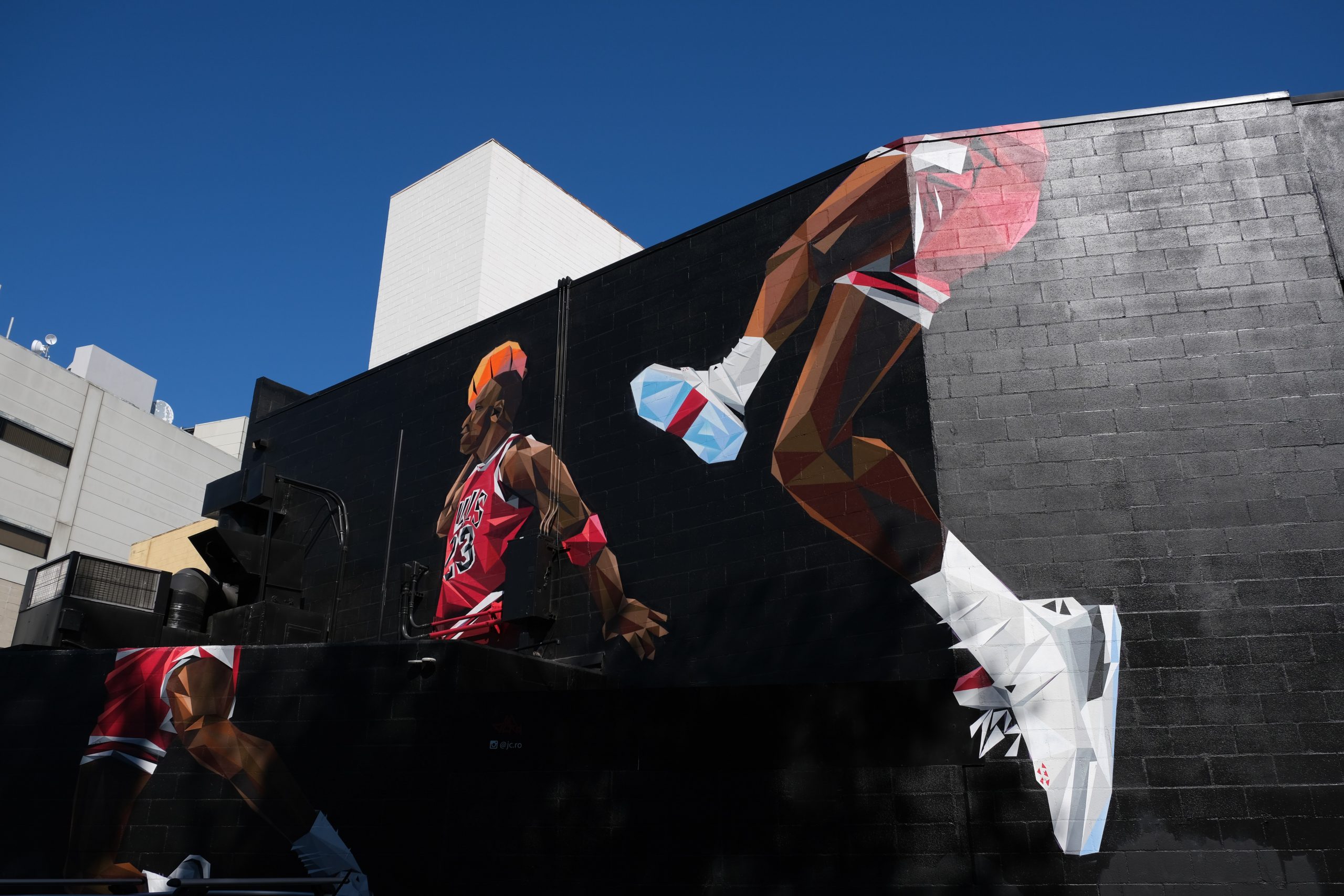Reports & Insights
Taking the Bulls by the Horns – Lessons from the Last Dance

Taking the Bulls by the Horns – Lessons from the Last Dance
Reports & Insights
Taking the Bulls by the Horns – Lessons from the Last Dance
Like seemingly everyone else, we have been avidly watching The Last Dance, Netflix’s pulsating documentary of the rise of Michael Jordan and the Chicago Bulls in the 80s and 90s. The series charts Jordan’s extraordinary career, from lanky high school player to third pick in the draft, and then to the Dream Team, Space Jam, five MVP awards and six championship rings.
Amid the dizzying dunks, dribbles and endorsements, the series does not shy away from asking complicated questions about Jordan and the organisation’s approach. As well as the two-year sabbatical in minor league baseball, The Last Dance also shows the darker side of MJ, including belittling, shaming and even punching his teammates as he tried to drag them up to his impossible to reach playing level. Did Jordan go too far, or was his demanding, petty, hyper-competitive approach a necessary component of his undoubted on-court genius? As fans around the world ponder that question, we take a look not at judging Jordan, but at the lessons that can be learned from the series and the Bulls’ success. We’ve picked six, one for each of Jordan’s titles.
- Find something that motivates you and focus on it
Game after game, season after season Jordan was able to find something to intensify his laser like focus. Often, that something was an opposition player who Jordan perceived as having slighted him or the Bulls in the past. Whether it was the physicality of Isiah Thomas and the Detroit Pistons side who blocked the Bulls’ progress in the late 80s, or a televised comment from an upstart rookie that they didn’t fear guarding Mike, Jordan channeled his energies into surpassing their talents and proving them wrong. At other times, Jordan found energy in indirect slights. The NBA’s decision to award the 1993 MVP title to Charles Barkley is cited as Jordan’s particular motivation when it came to the finals. The press comparing Jordan to Clyde Drexler in 1992 achieved the same, with Jordan confirming that “Being compared to him? I took offence to that”. When playing for the 1992 American “Dream Team”, Jordan and his lieutenant Scottie Pippen focused on destroying Croatian forward Tony Kukoc, whose only crime was being courted by Bulls GM Gerry Krause. While it is tempting to wonder how healthy Jordan’s obsessions with individual slights might be, what is not in doubt is his ability to use external events to fire himself up and achieve even greater levels of performance. The constant awareness of the next challenge, and the constant desire to be improve can help businesses as much as sportsmen. What is the next horizon for your business? Could research help identify new sectors or categories to target and grow?
- Managing people well means managing people differently
Among the more unimpeachable characters in The Last Dance is Bulls coach Phil Jackson. As well as rising to the top of a lot of watchers’ fantasy dinner party lists with his wide-ranging interests and ability to let his hair down when the time is right, Jackson provided a masterclass in how to manage testing, difficult characters. Nowhere was this clearer than in his handling of Basketball’s wild child, Derek Rodman. What Jackson understood was that Rodman was, for better or worse, different from his teammates. Where others might need a massage, meditation or a night in to unwind, Rodman needed a big night out. Despite pressure from some of the other players, Jackson did give Rodman leave to travel to Vegas for a mid-season break in 1997. Though Rodman would ultimately take advantage of this privilege and not respect the 48-hour time limit, leading to Jackson and Jordan becoming incensed, the pair continued to put a protective arm around their eccentric defensive star. Of course it helped that Rodman was seemingly able to perform exceptionally on a Basketball court whether he prepared by training and studying tapes or by partying in Vegas with Carmen Electra and wrestling with Hulk Hogan. When pressed on whether Rodman’s decision to do the latter between game four and five of the 1998 finals was distracting, Jackson replied that it distracted the press, not the team. His, and the Bulls’, approach, was that Dennis would be Dennis, and would prepare as he would. The rest of the team would prepare in the way that was right for them. That is not to say that Jackson indulged Rodman’s every whim. A request that Carmen Electra travel on the team bus to games for example was swiftly rejected. Looking after Dennis took a toll on players and management but ultimately Jackson’s willingness to listen and to show more flexibility and understanding of a difficult character than many in modern day sport and business might have done contributed heavily to the Bulls’ success.
- Don’t let fear of the future affect the present
One of the most inspiring Jordan quotes featured in the series comes in the final episode, as the Bulls prepare to close out the repeat threepeat in 1998. Talking about fear of losing, Jordan asks “why would I think about missing a shot I haven’t taken?”. As the world deals with crippling uncertainties around public health and finances, it is easy for businesses to fear the future, put plans on hold and hunker down. Getting too caught up in what challenges might be round the corner is equally likely to let opportunities created by the new world slip away. Investing in adapting, preparing, and in researching the evolving sporting planet is one thing. Dreading it is another. In fact, good research can help identify new opportunities or routes to market, and help develop tools and strategies to create and navigate an exciting future.
- Prepare Jordan
One of the striking features of the documentary is Jordan’s unerring and consistent eye for detail, a product of the forensic preparation that he and the Bulls coaches put into every game. Given the NBA’s hectic schedule, such attention to individual strengths and weaknesses is all the more commendable. Poring over the video analysis and opponents’ matches, Jordan was continuously on the look out for the most marginal of gains. A slowness turning one way or the other, a weakness defending a specific feint, a particular passing pattern that an opponent turned to in crunch moments, Jordan knew them all, and was able to take advantage of that knowledge to make game winning plays. However busy your schedule, there should always be time to prepare well for meetings, pitches and important calls. The same goes for marketing. Time and money spent testing adverts, logos or new products with key groups of current and potential customers can more than pay for itself in the long run.
- You can’t get anywhere without trusting people
When Jordan joined the Bulls he was immediately the alpha. Rookie Of The Year in his first season, Jordan, and the rest of the Bulls organisation knew that he was not only better than his teammates, but significantly so. Under coach Doug Collins the team’s approach revolved around getting the ball to Michael. Jordan himself admits that “I wasn’t a Phil Jackson fan when he first came in. He was coming and taking the ball out of my hands”.
Only in 1998 did Jordan hit the decisive shot in the Finals winning game. Other championships were sealed by role players like John Paxson and Steve Kerr, less talented but exceptionally hard-working members of the team who stayed out of the limelight but excelled in the important moments. Had Jordan not trusted Paxson and Kerr to make the shots, the likely result would have been forcing a play that was never on and missing the shot or turning the ball over. Jordan could not win championships without his supporting cast, something he has openly acknowledged, particularly when it comes to the importance of Scottie Pippen. In turn, Jordan’s trust made Paxson, Kerr and Pippen better players, creating a Bulls team that was greater even that the sum of some exceptional parts.
As well as bespoke research that delivers competitive advantage for clients, SMS also works across multiple sports on programmes that encourage the industry to work together to enhance the sport for all. Data sharing for retail audits, and shipment programmes in the UK and US bring together data streams from multiple participants for the benefit of everyone involved.
- Don’t be afraid to admit you are wrong
As well as being a perfect sporting parallel of the importance of trusting your teammates, Jordan’s changing opinion of Phil Jackson also provides another important virtue, changing your mind when presented with evidence. One notable character who did not show a willingness to do this was Isiah Thomas, point guard and captain of the Detroit Pistons, and most famous for leading his team’s walk off without shaking the Bulls’ hands in the 1991 Eastern Conference Finals. Presented by the documentary with a chance to regret or apologise for his actions, Thomas insisted that he would do the same again. Johnson on the other hand admitted he was wrong to punch Steve Kerr, and rang to offer an apparently detailed and heartfelt apology. Most impactful on the team performance though was the recognition that Jackson’s triangle offence could and would lead the team to more titles than Doug Collins’ approach that was racking Jordan up trophies for league top scorer. In the same vein, arguably it was Bulls GM Gerry Krause’s stubbornness about the futures of Jordan, Pippen and Jackson that led to the breakup of the Bulls dynasty and the premature retirement of one of the greatest Basketball players of all time. Don’t let assumptions stand in the way of your business. With SMS’ independent insight and honest reporting, research can provide additional information and points of view to create paradigm shifting change.
Sports Marketing Surveys (SMS) is a specialist research agency with global reach and 35 years’ experience. Our full range of quantitative and qualitative approaches provides comprehensive analysis in more than 100 sports. The resulting insight and strategic recommendations support some of the biggest brands, retailers, events, venues, federations and governing bodies around the globe to grow their business and get closer to the people who matter.
"good research can help identify new opportunities or routes to market, and help develop tools and strategies to navigate an exciting future"
More News Articles
More News Articles
Looking for extensive insight and strategic solutions for your organisation? We can help.



